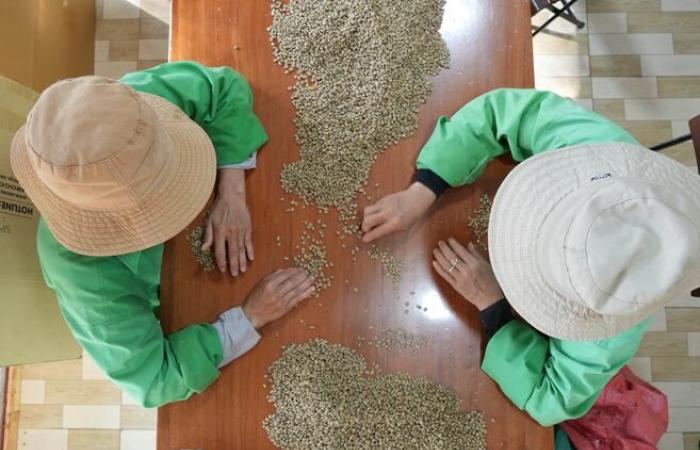The rise in prices is above all linked to “supply, whether in Latin America or in certain African countries”, explains John Plassard, analyst at Mirabaud, to AFP. “Production forecasts are not very good for the next six months.”
In Brazil, fires of extraordinary magnitude, most of them of criminal origin according to the authorities, raged for several weeks this summer, from the Amazon in the north to the south of the vast country, favored by a historic drought, which experts attribute in part to global warming.
As a result, the coffee harvest, of which this agricultural giant is the world’s leading producer and exporter, is shaken: the pound of arabica, the most aromatic, most expensive and best-selling variety, reached a record on Wednesday in New York since 1977, at 320.10 cents.
Concerns in Vietnam
After this “long dry and hot period”, coffee trees in Brazil benefited from “significant rains” in October, contributing to “exceptional flowering in most arabica coffee-producing regions”, according to Guilherme Morya, of Rabobank.
But the analyst notes an “uncertainty about the progress of flowering, which raises significant concerns” about the 2025/26 harvest.
If the flowers do not attach themselves to the branches, they will not be able to later turn into cherries, which contain the coffee beans.
Other factors, geopolitical this time, such as disruptions to maritime transport in the Red Sea, increases in American customs duties promised by Donald Trump and the future European Union regulation on deforestation are helping to support prices. raw materials in general, and coffee in particular.
“In this context of uncertainty, farmers choose to only sell what is necessary, thus limiting the supply of coffee on the local market,” concludes Mr. Morya.
These supply fears also concern Vietnam, the leading producer of cheaper robusta, used for example for instant coffee.
This variety, listed in London, now trades around $5,200 per tonne. In mid-September it reached a record price of $5,829, unheard of since the opening of the current reference contract in 2008.
This price would even be unprecedented since the 1970s, according to the Bloomberg agency which relies on archives.
“Addicted”
“It is clear and clear that this will have a significant impact for the consumer,” affirms John Plassard, and this, from the start of next year for the companies which will negotiate their coffee contract.
Directly affected, the coffee sales giants, like Nestlé, “will pass on the prices to their customers”.
The company, which owns Nespresso, Nescafé but also Starbucks pods sold in supermarkets, already announced in November that it would increase prices and reduce the size of its sachets in view of an erosion in margins, reports Bloomberg.
Clinging to her oat milk “latte” on Wednesday outside a London coffee chain which is always full, Nicky, 26, already knows that she will not reduce her consumption if prices rise. “I will always be ready to pay, maybe that’s being financially irresponsible,” admits this young professional, who calls herself “addicted”.
Julie, 34, coffee in hand, who also doesn’t intend to give up her dose of caffeine, is already starting to “buy packs” to “prepare everything at home”.






